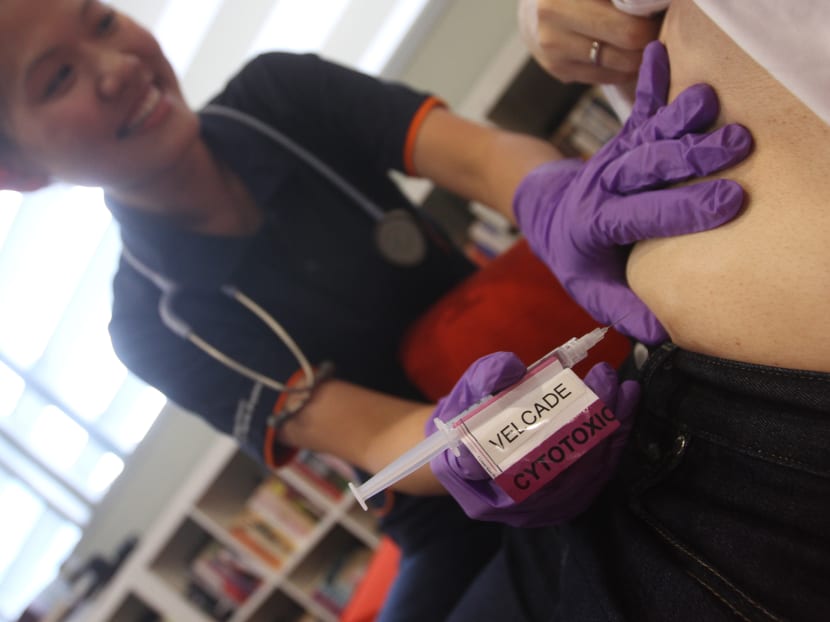Myeloma cancer patients get option for treatment injections at home
SINGAPORE — Myeloma patients at the National University Cancer Institute, Singapore (NCIS) can now choose to receive their treatment injections at home instead of travelling to the hospital, making it more convenient and less risky for them.
SINGAPORE — Myeloma patients at the National University Cancer Institute, Singapore (NCIS) can now choose to receive their treatment injections at home instead of travelling to the hospital, making it more convenient and less risky for them.
Myeloma is a cancer that arises from abnormality of plasma cells at the bone marrow, which could lead to more clinical symptoms and medical complications such as recurrent infections, bone fractures and anaemia. Typically, patients are older and may have difficulties moving around. In addition, the cancer affects the immunity system, exposing patients to a higher risk of infection.
Professor Chng Wee Joo, senior consultant of NCIS’ department of haematology, oncology said there are about 700 to 800 myeloma patients in Singapore today, and about 100 people are diagnosed with myeloma every year.
NCIS started a three-year pilot in August this year, where trained nurses travel to myeloma patients’ homes to administer a treatment drug called VELCADE. The whole visit takes between 15 and 30 minutes, including other routine check-ups. In contrast, patients receiving the injection in hospital take about an hour, because of the time for registration and waiting for the pharmacy to prepare the injection.
So far, 10 patients have signed up for the pilot.
Ms Kelly Lai, a 30-year-old senior staff nurse in the Division of Oncology Nursing at NCIS who makes about three to four such home visits daily, said being in patients’ homes allows her to observe them better.
“We are able to see the environment and conditions they live in and identify potential health and medical issues which we can then highlight to the patients and the medical staff,” she said.
Mr Gwee Choon Huat, 64, one of the patients involved in the pilot, said: “At home, there is less risk of contracting airborne infectious diseases, especially as my immunity level is low.”







